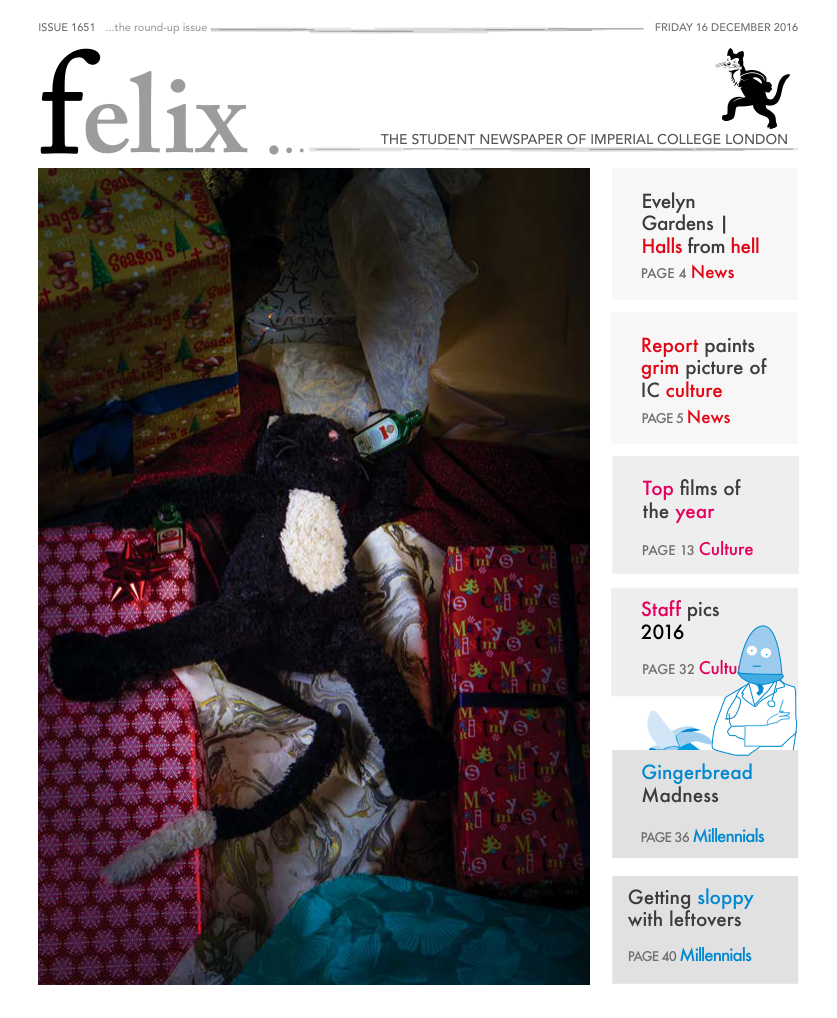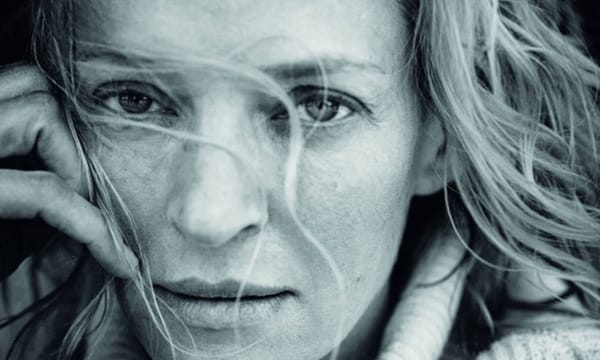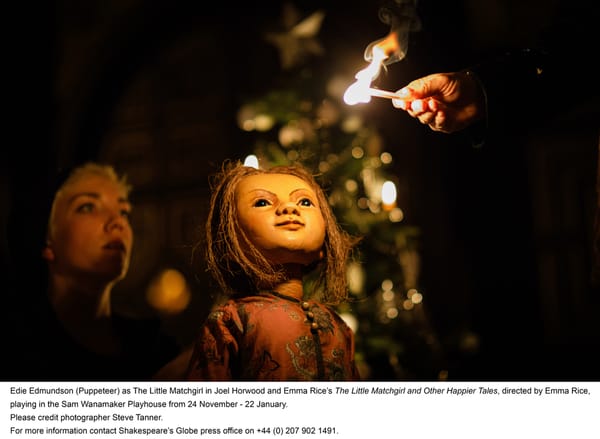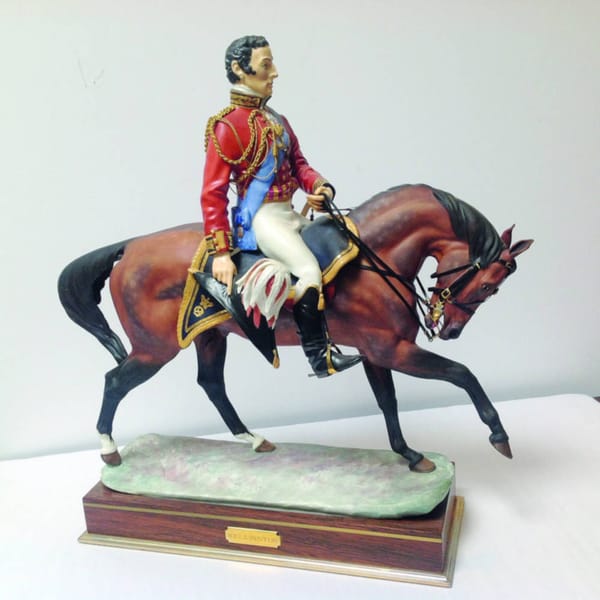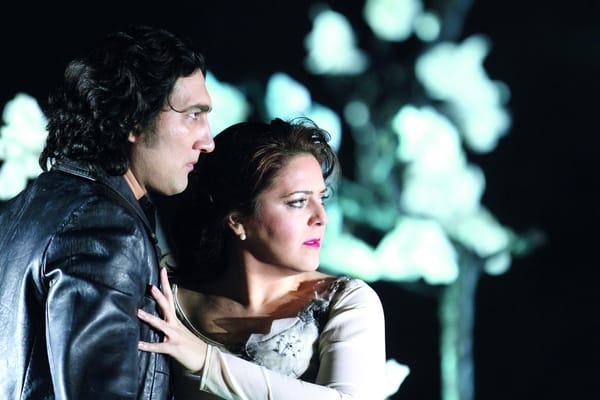A seat at the (culture) roundtable
Culture editors Indira Mallik and Fred Fyles give their round-up of the last 12 months in terms of culutre. Expect TV escapism, highlighting women in music, and going crazy over Olivia Laing...
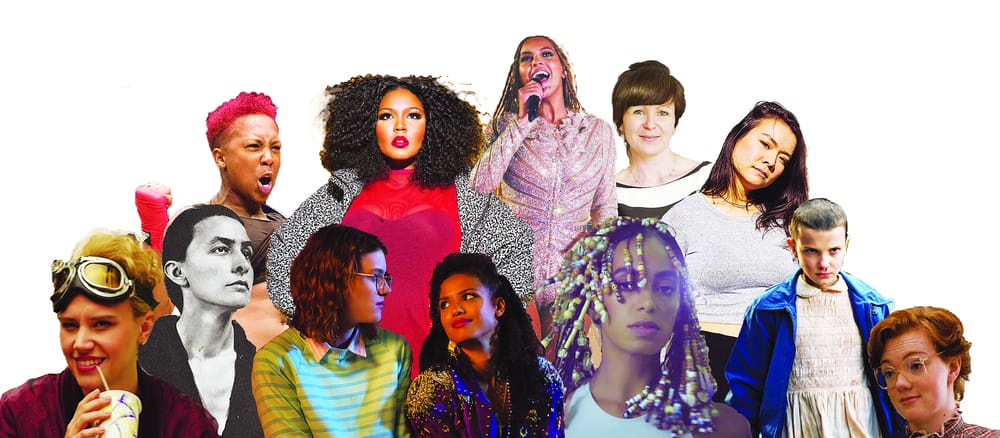
During the American election cycle on his comedy show Last Week Tonight, John Oliver had a running gag – “look up,” he’d say “that faint glimmer in the distance? That’s rock bottom.” So it has seemed for most of 2016; in almost every sphere, particularly in politics, bad news has been followed by worse news. Brexit in the summer has been followed by the election of a man who brags about sexual assault and, having promised to “drain the swamp” of cronyism in Washington has recently appointed oil execs and CEOs of Wall Street giants to the highest cabinet offices in America.
Happily, the world of culture and entertainment, reeling from the loss of David Bowie and Prince earlier in the year, has provided much needed relief; some have been in the form of escapism, others as rousing calls to arms. Beyonce released Lemonade in February, an album that is as much rooted in cinematography as in music - if you ever need a pick-me-up just watch clips of Bey smashing cars wearing a glorious Cavalli yellow dress in Hold Up, or Serena Williams telling every man "boy, bye" in Sorry. Lemonade was Beyonce's most political offering to date, celebrating the resilience of black women in the face of generations of hardship and compromise. Its message of healing and self-love had much in common with Lizzo's sophomore offering Coconut Oil, in which Lizzo belts out some impressive vocals to a background of rich basses and organs. Her lyrics on the titular track are comforting and empowering in a time when we could all do with just that; “I thought I needed to run and find somebody to love, but all I needed was some coconut oil”. The album of the year for me however belongs to another Knowles sister; Solange’s A Seat at the Table is a haunting look at the experience of black women in America, it is by turns lyrical, bleak and wonderfully uplifting.
By mid-November all my appetite for consuming bittersweet media had been used up; there was too much in the real world to feel sad about. It was at this moment that I discovered Black Mirror’s new season, in particular the fourth episode San Junipero. Black Mirror is a series known for its darkness. San Junipero, the story of two women time-travelling and falling in love could easily have conformed to the pattern; their sapphic relationship alone marked them out for a target of a potentially heartbreaking resolution: 2016 was a year in which the ‘bury your gays’ trope prevailed in TV. In Orange Is the New Black, Poussey Washington – a fan favourite – was inadvertently strangled by a guard after the possibility of her release from prison and a happy future with her girlfriend seemed within reach; in March, Lexa’s demise on the cult hit The 100 caused an internet outcry that lesbians and bisexual women were being used as cannon fodder to generate cheap shock. Given Charlie Brooker’s propensity to write tragic twist endings, we might’ve expected the largely joyous episode to end in a break-up, yet San Junipero killed off both characters and allowed them to ride off Thelma and Louise style (minus the cliff edge) into the sunset. The subversion of the ‘bury your gays’ trope, as well as a excellent 80s inspired soundtrack (available on Spotify) made San Junipero unique not only in Brooker’s oeuvre but in TV as a whole.
Subversion of Shakespeare was at the core of Phyllida Lloyd’s return to the Donmar. The Shakespeare Trilogy featured an all-female cast in The Tempest, Henry IV, and Julius Caesar. The performances, led by a diverse cast that seemed to have benefited from colour-blind casting, as well as featuring women in the male roles, brought fresh insight into the 400-year-old plays. London staged several high profile exhibitions this year from Abstract Expressionism at the Royal Academy to Picasso Portraits at the National Portrait Gallery. My favourite remains Painting the Modern Garden at the Royal Academy. It was filled with beautiful works by Sargent, Van Gogh, Matisse, by way of Klee and Kandinsky, but the stand out experience of the exhibition was the last room – huge Monet canvases were hung so that if one stood in the right spot their entire field of vision would be filled with Monet’s visions of his garden at Giverny.
2016 marked the return of book reviews to the Arts section, and my discovery of the wondrous joy of reading anything by Olivia Laing. In The Lonely City, Laing mixes criticism of the artists Edward Hopper, Andy Warhol, Henry Drager, and David Wojnarowicz with her own experiences of living an increasingly lonely life in New York; desperate for connection and yet unable to find it. Her chapters on Wojnarowicz, in which she describes the spread of the AIDS crisis in New York, are particularly moving. The experience of reading Laing is enjoyable not only for the topics she tackles with extraordinary sensitivity and insight but the prose itself. Whilst I was reading, I found myself taking breaks to photograph particular turns of phrase, and in some instances entire paragraphs to send to my friends; the messages would often be followed by my cogent commentary - a frenzy of exclamation marks.
Incoherent glee was also my reaction to the Ghostbusters reboot. I’ll be honest – the first time I went to see it I was mostly exercising my personal form of protest against the Reddit and 4chan users who had spent the months preceding its release rubbishing it whenever possible, but the next two times I went were to enjoy the pure cheesy fun. It may not have been critically acclaimed but it was a movie in which the female cast got to save the world and did not have to look cute whilst doing it, that itself being worthy of celebration.
Indira Mallik
§
Starting with the death of David Bowie, and finishing with a deeply shocking humanitarian crisis in Syria, 2016 has officially been A Very Bad Thing. Along the way, we’ve seen the rise of far-right populism, the election of a bully to the highest political office, and the death of numerous icons. Is it any surprise that in this terrible year, people want to escape back into simpler pleasures of the past? This might explain the success of Stranger Things – scripted and directed by the Duffer Brothers, Stranger Things mined our collective nostalgia for the 1980s (even among those not born yet), layering references to films like ET, The Goonies, and Firestarter over a brilliantly pulsing electronic soundtrack. Featuring a shady government research facility, a small town hiding dark secrets, and queen of the universe Barb, Stranger Things was an 8-hour escape from the horrible going-ons in the world.
While my two favourite books of the year might be wildly different in tone, they share a common landscape. In the non-fiction corner is The Lonely City (Verso), by Olivia Laing, a deeply moving portrait of the New York arts scene throughout the 20th century; Laing weaves her own personal narrative through the stories of luminaries like Andy Warhol, Edward Hopper, and Joseph Cornell, all told through her brilliantly lucid writing style. The chapter on David Wojnarowicz, an artist-cum-activist who died of AIDS in 1992, is hauntingly moving – Laing balances extreme melancholy at fallout from the AIDS crisis with a righteous anger at those who allowed it to continue. In the fiction corner, meanwhile, is Clare-Louise Bennett’s Pond (Fitzcaraldo), a collection of interconnected short stories revolving around a woman living alone on the coast of an unknown town. Bennett’s first collection, it displays her mastery of language, which she uses to craft a series of strange, beguiling tales, centring on the narrator’s rich interior life; from broken cookers to coveted ottomans, the line between the physical and the psychological is blurred by Bennett in an unnerving way. Both Pond and The Lonely City speak to the virtues of solitude and quiet thought, but also remind us that there is a fine line between looking inwards and becoming isolated. Most importantly, they both remind us that being alone and being lonely are quite different things.
Those interested in my favourite films of the year can flick over to the Film section for a complete breakdown of my top ten, but for me the most underrated film of the year was Lucile Hadžihalilović’s Evolution, an unsettling work of body horror whose imagery burned itself onto my retinas long after I left the cinema. Centring around an all-white village on a black sand coast, whose sole inhabitants are young boys and pale nurses, Evolution plays out like the most horrific combination of Michael Haneke and David Cronenberg you could imaging. Utterly chilling. While white women may have turned on their brown and black sisters in the US election, choosing a man who boasts of “grabbing women by the pussy” over the first female candidate for a major party, in music, 2016 has definitively belonged to women. Angel Olsen’s My Woman was a fierce statement of intent, different enough from her breakout 2014 album Burn Your Fire For No Witness for it to be exciting, but retaining its subtle force. Mistki, meanwhile, finally broke through with Puberty 2, after three previous excellent albums; singing about themes ranging from heartache to trying to fit in as an East Asian woman in modern America, Puberty 2 highlights Mitski’s clever lyrics and deft shredding. "Your mother wouldn’t approve of how my mother raised me," she sings on My Best American Girl, "but I do, I finally do" – you can almost imagine her steady gaze as she sings these lyrics. For me, the best album of the year was Solange’s A Seat at the Table, which takes stock of what it means to be black in America today, with Solange daring to display her heart and anger on her sleeve. The most exciting discovery, meanwhile, was Kadjha Bonet, an LA-based multi-instrumentalist whose debut EP The Visitor mines funk, soul, R&B, and so much more, to create a beautiful, cohesive whole.
In terms of theatre, I haven’t explored much outside that which has been on at the National Theatre, given their brilliant £5 tickets for under-26s; that being said, I thought that their production of The Threepenny Opera was phenomenal, bringing all the sharp-edged wit and dark humour we would expect from a Brecht piece. Rory Kinear was excellent as Macheath, but it was the supporting cast that stole the show, particularly Sharon Small’s tragic Jenny Diver and Nick Holder’s terrifying cross-dressing Mr Peachum.
In the art world, 2016 has been a year of firsts: the RA did their first major retrospective of the abstract expressionists since the 1950s; Tate Modern did their first Robert Rauschenberg retrospective since the artist’s death; and the Whitechapel Gallery ran the first exhibition centring on electronic art. My favourite exhibition was the Tate Modern’s Georgia O’Keeffe retrospective, which showed her as a giant of American modernism, whose work far extends past the flower paintings for which she is best known. From the strange landscapes of New Mexico, to the celebratory paintings of New York, O’Keeffe’s work presents the familiar in strange and unexpected ways – the exhibition, which displayed many works never seen outside the USA, was a complete triumph.
Fred Fyles


